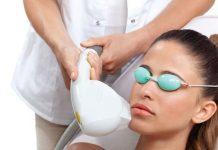Vein disease is a common problem that affects virtually everyone at some point in their lives. Whether you’re newly diagnosed with vein disease or you’ve been struggling with it for years, it’s important to know the dos and don’ts of vein disease. In this blog post, we’re going to cover the signs and symptoms of vein disease and offer advice on how to best treat it. We’ll also discuss the benefits of visiting a vein clinic and the different types of vein treatments available. By the end of this post, you’ll have everything you need to know to keep your veins healthy and functioning properly.
Signs And Symptoms of Vein Disease
Vein disease is a condition that can cause pain and discomfort in the legs. If you experience any of the following signs or symptoms, it is important to seek medical attention:
– Deformity in the veins or leg
– Discoloration on the skin
– Swollen feet or ankles
– Itching, burning sensation, or fatigue in the legs
– To help prevent vein disease, it is important to perform self-examination of the legs regularly and to wear compression stockings and elevate your legs to increase circulation. To further help prevent vein disease, avoid sitting or standing for long periods of time, cross your legs when seated, and avoid wearing tight clothing. If you do experience any of these symptoms, it is important to seek medical attention as soon as possible.
Do’s And Don’ts of Vein Treatment
VEIN disease is a serious condition that can lead to leg pain, fatigue, and other symptoms. If you’re experiencing any of these symptoms, it’s important to seek professional help as soon as possible. Below, we’ll outline some of the do’s and don’ts of vein treatment so that you can get on the road to recovery as quickly as possible.
The first step is to be aware of the symptoms of vein disease. Many people don’t even know they have it until it’s too late. Some common symptoms include visible veins, muscle pain and heaviness, difficulty walking or standing for long periods of time, and difficulty breathing. If you notice any of these symptoms, it’s important to seek medical attention right away.
Next, make sure that you establish a healthier lifestyle in order to prevent vein disease from developing in the first place. This means exercising regularly and avoiding standing for long periods of time. Additionally, make sure that you’re eating a balanced diet and avoiding unhealthy habits such as smoking and excessive alcohol consumption. Finally, strive for optimal weight by eating healthy foods and exercising regularly. These simple changes will help keep your blood vessels healthy overall.
If you still experience symptoms after making these changes, then it’s important to see a professional for further evaluation. A doctor may order additional tests or prescribe treatments specific to your individual case. However, if you continue experiencing problems despite following the advice above then it may be time to see a doctor about vein disease in general. Vein disease is a serious condition that should not be taken lightly – always consult with your doctor before starting any new treatment plan!
The Benefits of Visiting A Vein Clinic
Are you feeling a bit down? Are your symptoms keeping you from doing the things that you love? If so, it might be time to visit a vein clinic. Vein disease is a common problem, and it can be treated with a variety of treatments. Below, we will outline some of the benefits of visiting a vein clinic and discuss some of the signs and symptoms that you should watch for.
Vein disease is an umbrella term that refers to any condition that affects the veins. Common symptoms of vein disease include pain, redness, warmth, swelling, or tingling in one or more veins. In many cases, these symptoms are subtle enough that they go unnoticed. However, if you are experiencing any of these signs and symptoms regularly or if they are causing significant problems for your health or well-being, it may be time to visit a vein clinic for assessment.
How To Recognize the Signs Of Vein Disease?
The most common sign that someone has vein disease is pain. Pain in one or more veins can often be correlated with other signs and symptoms such as redness or warmth in the area affected by the pain. It’s important to remember that not all pain is indicative of vein disease – so don’t hesitate to seek medical attention if you’re unsure about whether or not your pain is related to another condition.
The Benefits of Visiting A Vein Clinic?
There are plenty of reasons why visits to a vein clinic can be beneficial for anyone suffering from any form of vascular illness. For starters, having proper diagnosis and treatment early on can save lots of unnecessary agonies and suffering down the road. Secondly, proper nutrition plays an important role in maintaining overall health and well-being – which includes preventing diseases such as heart disease and stroke.
Often times poor eating habits are at least partially responsible for developing vascular illnesses in the first place! Finally, receiving treatment from a qualified professional staff member can help improve the overall quality of life by reducing anxiety levels and providing support during challenging times.
To Sum Things Up
Vein disease can be a serious condition if left untreated. It is important to understand the signs and symptoms, do’s and don’ts of vein treatment, as well as the benefits of visiting a vein clinic. Knowing these things can help you maintain your overall health and wellness. If you think you may have any type of vein disease, be sure to contact a professional vein specialist for proper diagnosis and treatment options. Don’t wait any longer – take action today!




